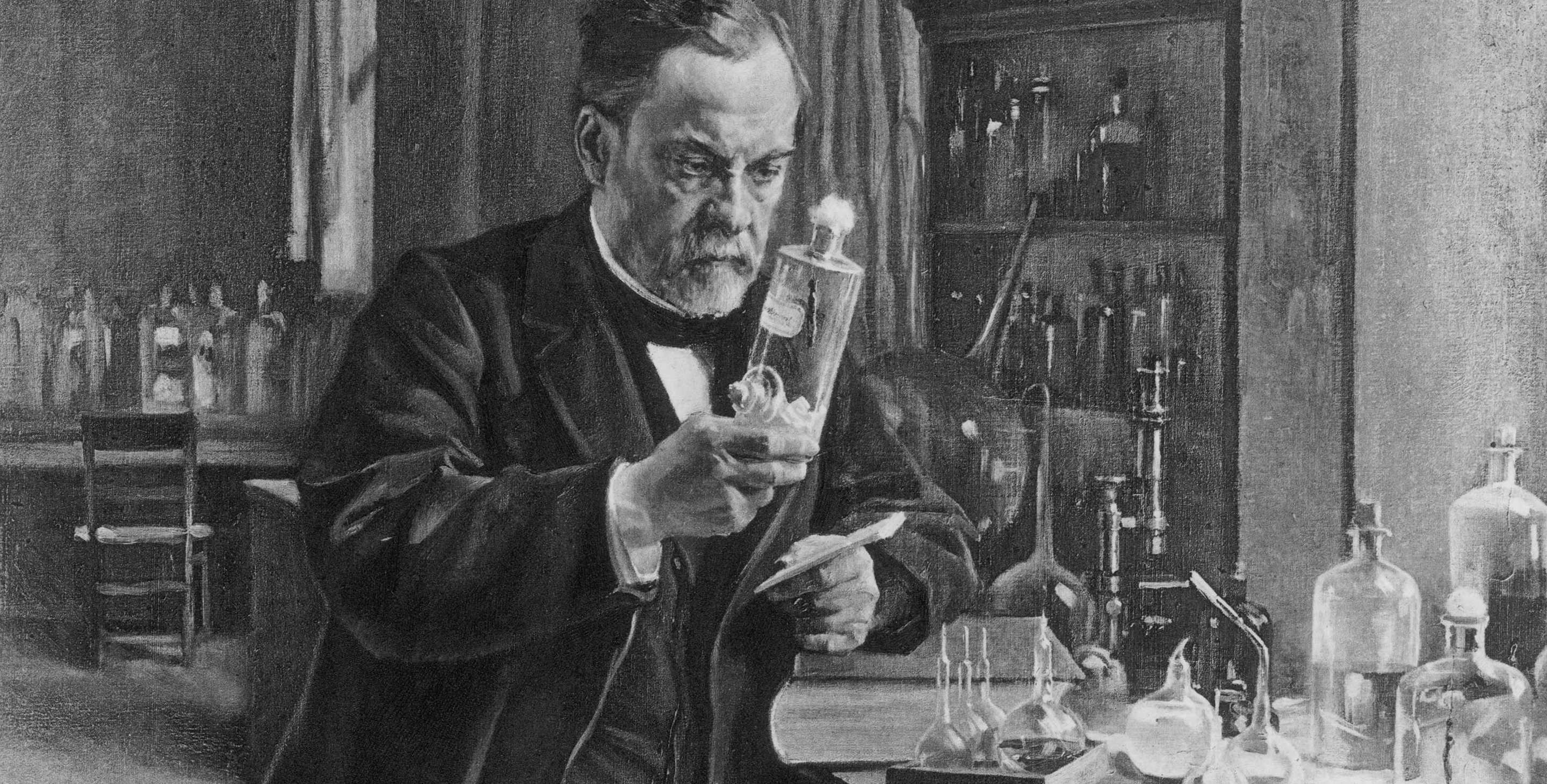Louis Pasteur, ForMemRSThe Father of Germ Theory

Louis Pasteur stepped onto the world stage with a famous experiment borne out of necessity. In July 1885, a rabid dog attacked a boy named Joseph Meister. At a time when this would have been a death sentence from rabies, Joseph’s mother asked for help from Louis Pasteur, who she heard was working on a cure for rabies. Pasteur inoculated the child with 13 increasingly strong doses of an experimental rabies vaccine. At the end of the treatment, the child did not develop rabies, and a new era of vaccination began.
The rabies vaccine was not Louis Pasteur’s only achievement, though it was lauded the world over because there was no treatment and cure of rabies at the time. By the time of his experiment on Joseph Meister, Pasteur had already developed a vaccine against chicken cholera and anthrax in cattle. He had also shown that spontaneous generation was non-existent, proving that food spoiled from something landing on it from the environment. And his work on vaccines solidified the main tenets of germ theory. Instead of believing that bad air caused disease, scientists changed their focus to diseases -- especially communicable ones -- being caused by a germ of some kind.
Pasteur received many accolades for his work. Among them, he was named a Foreign Member of the Royal Society in 1869. He was elected to the Académie Nationale de Médecine in 1873. The Royal Netherlands Academy of Arts and Sciences named him a foreign member in 1883. By the time of his death, Louis Pasteur asked that his extensive notes on his laboratory methods and experiments be kept private. They were not released to the public until 1964.